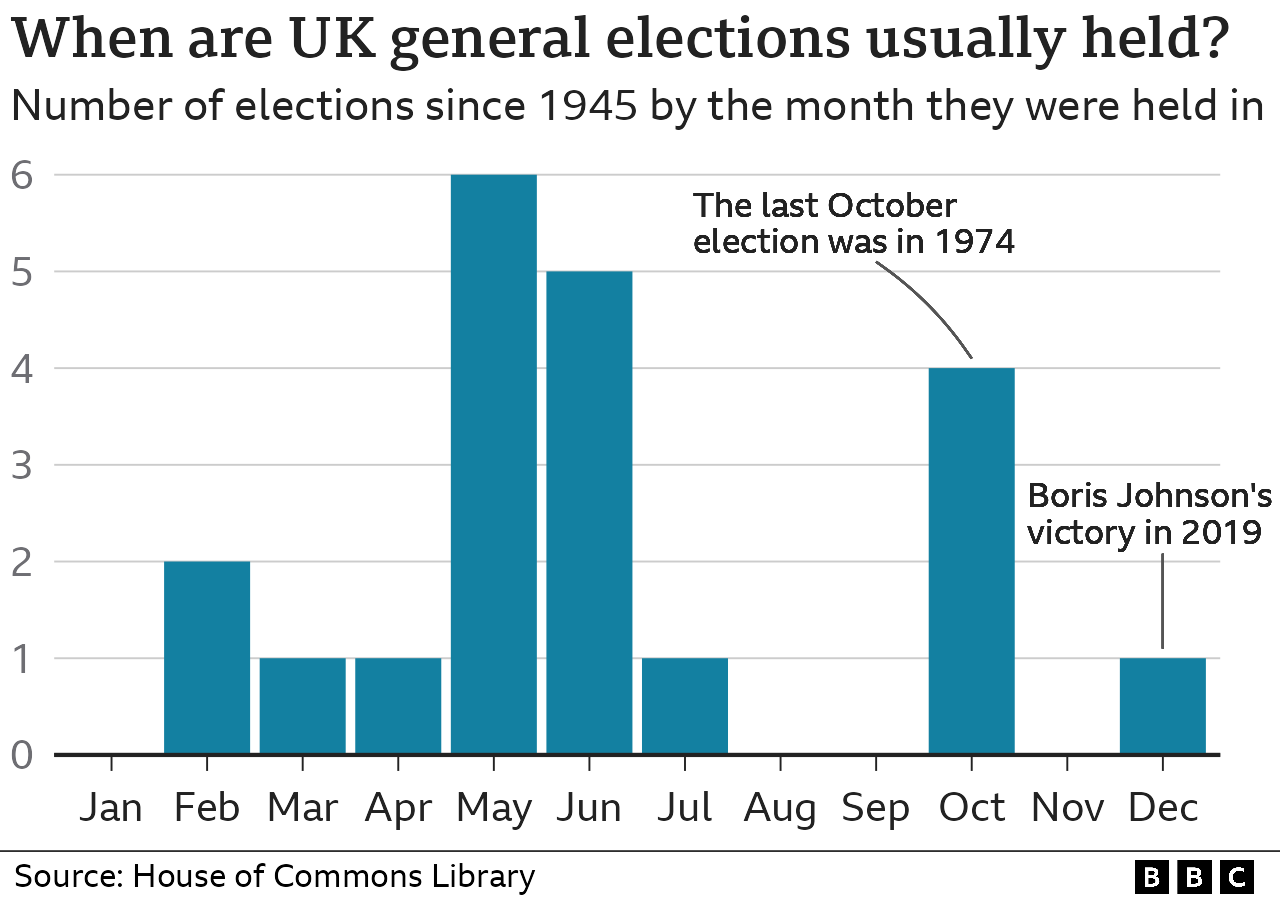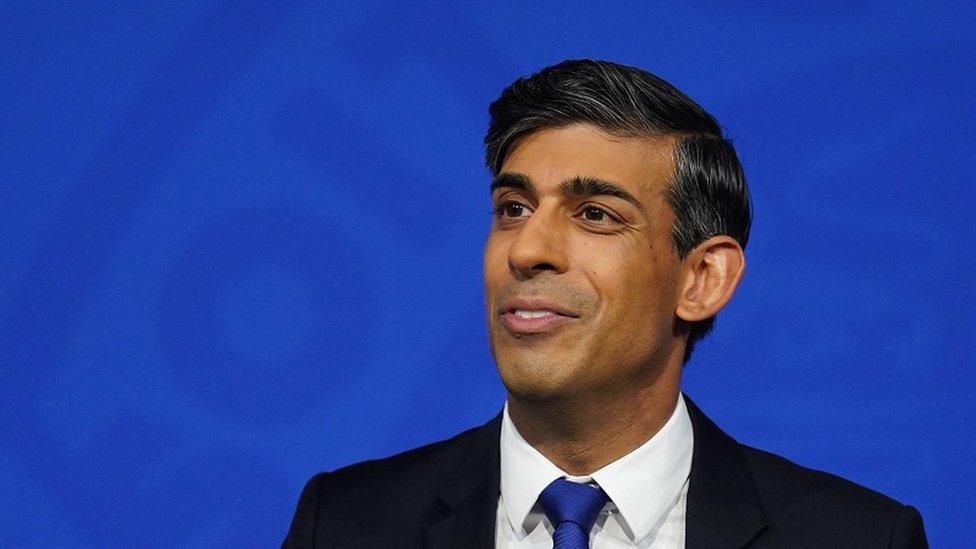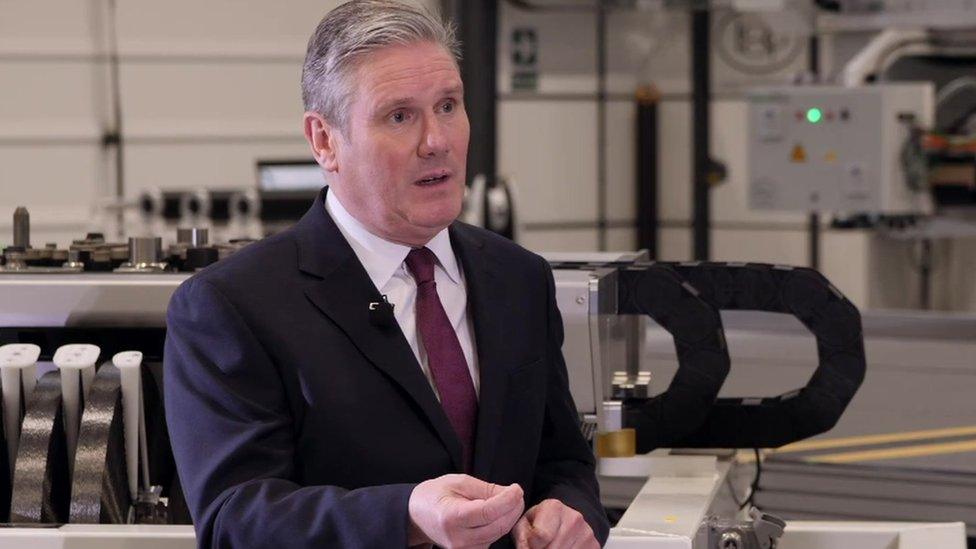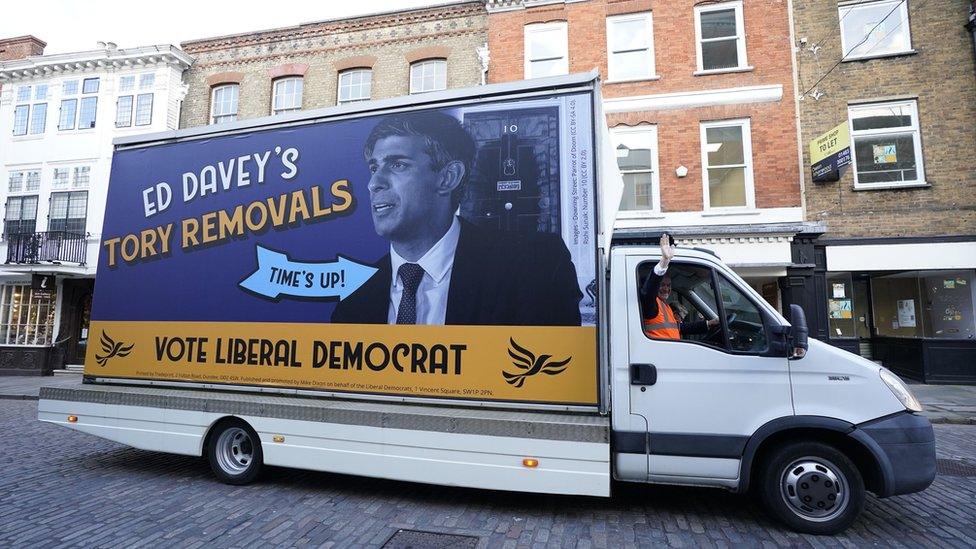Rishi Sunak suggests general election in second half of year
- Published
- comments
The PM appears to rule out holding a general election in the spring
Prime Minister Rishi Sunak says he is working on the assumption that he will hold a general election "in the second half of this year".
In recent weeks, there has been speculation he might call one in May, when there are local elections.
Labour leader Sir Keir Starmer accused him of "squatting in Downing Street for months on ends, dithering and delaying while the country wants change".
He said both the country and the Labour Party were ready for an election.
Liberal Democrat leader Sir Ed Davey also called Mr Sunak a "squatter... holed up in Downing Street, desperately clinging on to power rather than facing the verdict of the British people".
The prime minister had "bottled" a May poll, Sir Ed said.
The latest the next election could legally be held is 28 January 2025.
The opening days of this year have already been full of speculation about the timing of the election - but Mr Sunak has now killed a lot of that, for a few months at least.
Last week, Labour claimed a spring vote was the "worst kept secret in Parliament". The Liberal Democrats have called on Mr Sunak to hold the vote in May.
SNP Westminster leader Stephen Flynn said Mr Sunak had "shown a little bit of cowardice" by "trying to run back into the autumn".
Green Party co-leader Carla Denyer said voters did not want the Conservatives to "get one day more to screw up the country", but were not "feeling inspired by the Labour party either".
Opposition parties were talking up the prospect of a May poll so that, if the prime minister decided to wait until later in the year, they could then accuse him of running scared.
Mr Sunak and his team have clearly decided this is not a risk they want to take - and the phrase "working assumption" gives him enough room to change his mind should circumstances change.
The prime minister told broadcasters on a visit to a youth centre in Mansfield: "I've got lots that I want to get on with."
He declined to rule out a May election categorically, but repeated his intention to go to the country later in the year.
"I want to keep going, managing the economy well and cutting people's taxes.
"But I also want to keep tackling illegal migration. I'm determined to keep delivering for the British people," the prime minister said.
'Project Hope'
He acknowledged that the last 12 months had been "tricky", but promised a "better year" ahead.
"Look, 2023, I'll be honest, it wasn't the easiest of years, for any of us, it wasn't an easy year for our country."
The nation was still dealing with the legacy of Covid, the war in Ukraine and the conflict in Gaza, he said.


Mr Sunak raised the prospect of further tax cuts after the easing of national insurance on 6 January, despite the Conservatives increasing the overall tax burden to its highest level since the Second World War.
He said: "We want to do more because as we manage the economy responsibly, we can cut your taxes, give you and your family peace of mind, immediate relief from some of the challenges you're facing and confidence that the future is going to be better for you and your children."
Earlier, in a speech in Bristol, Sir Keir set out what he called "Project Hope" for a "downtrodden Britain".
He said the public were right to be "anti-Westminster" after 14 years of Conservative rule, but added his party was offering "a decade of national renewal".
In a dividing line with the Conservatives, he signalled he would wait to grow the economy before cutting taxes.
- Published4 January 2024

- Published4 January 2024

- Published3 January 2024
